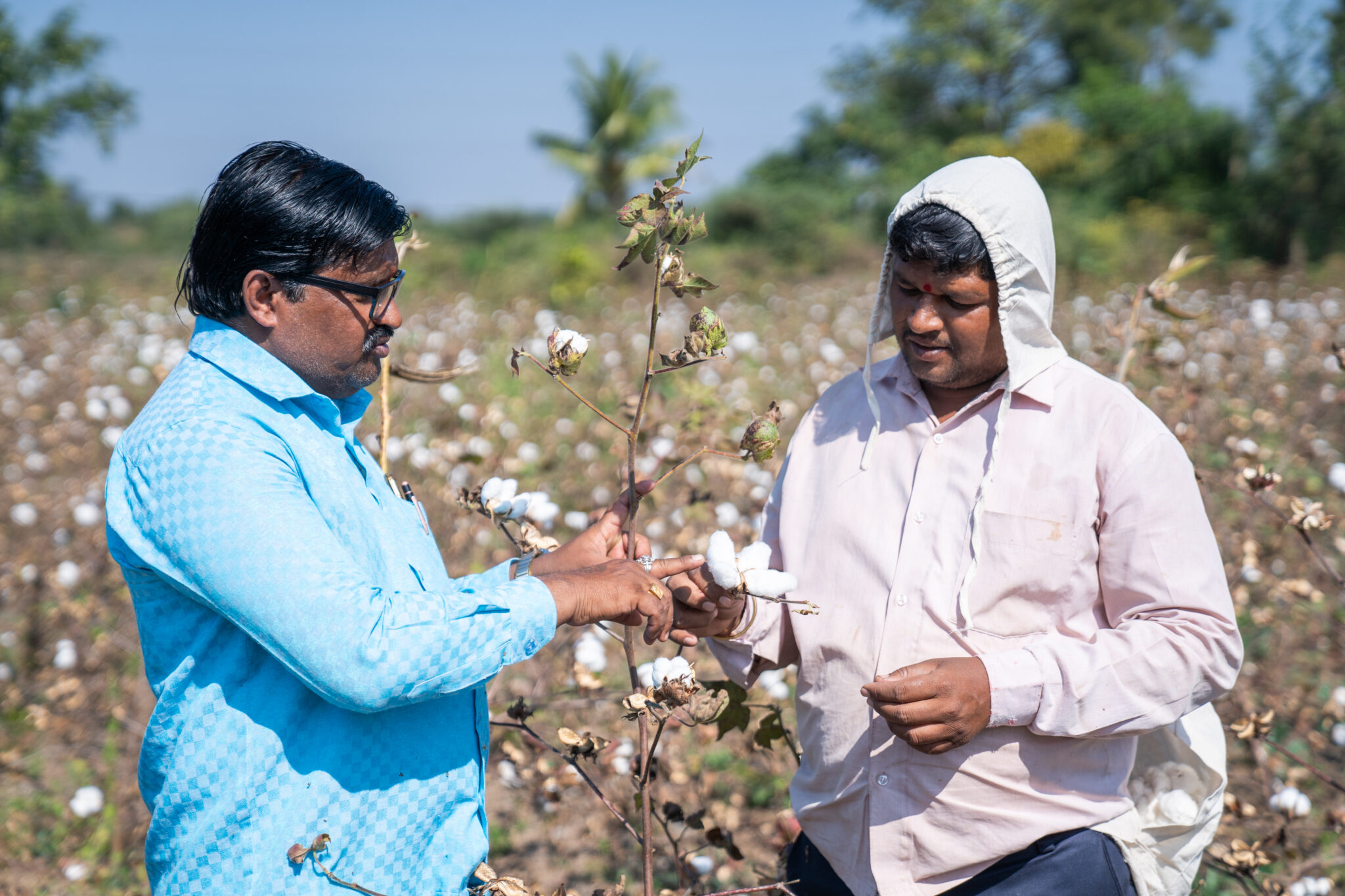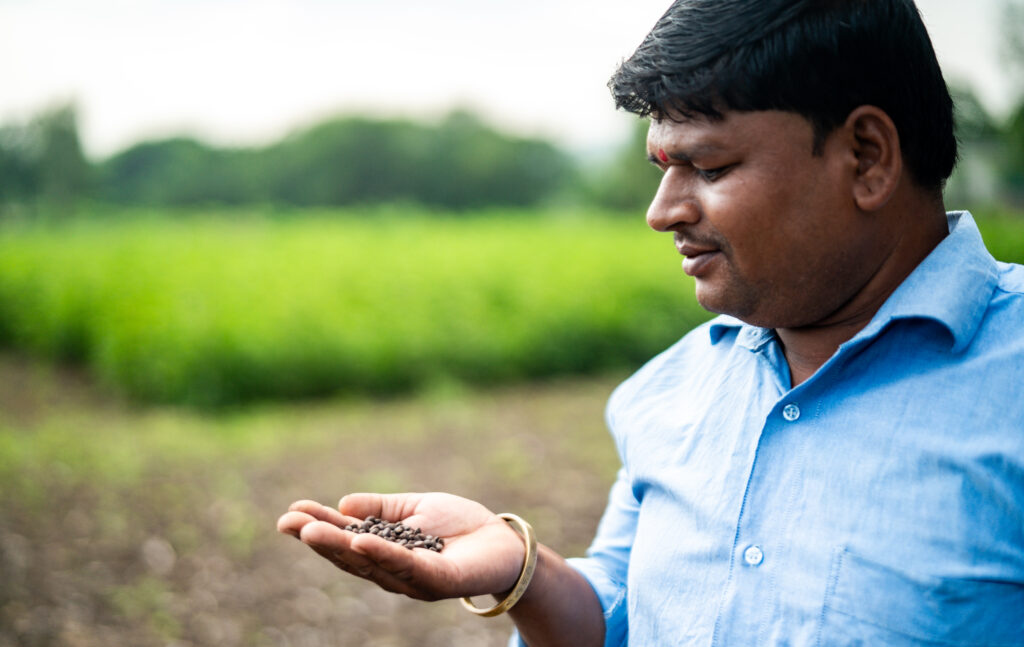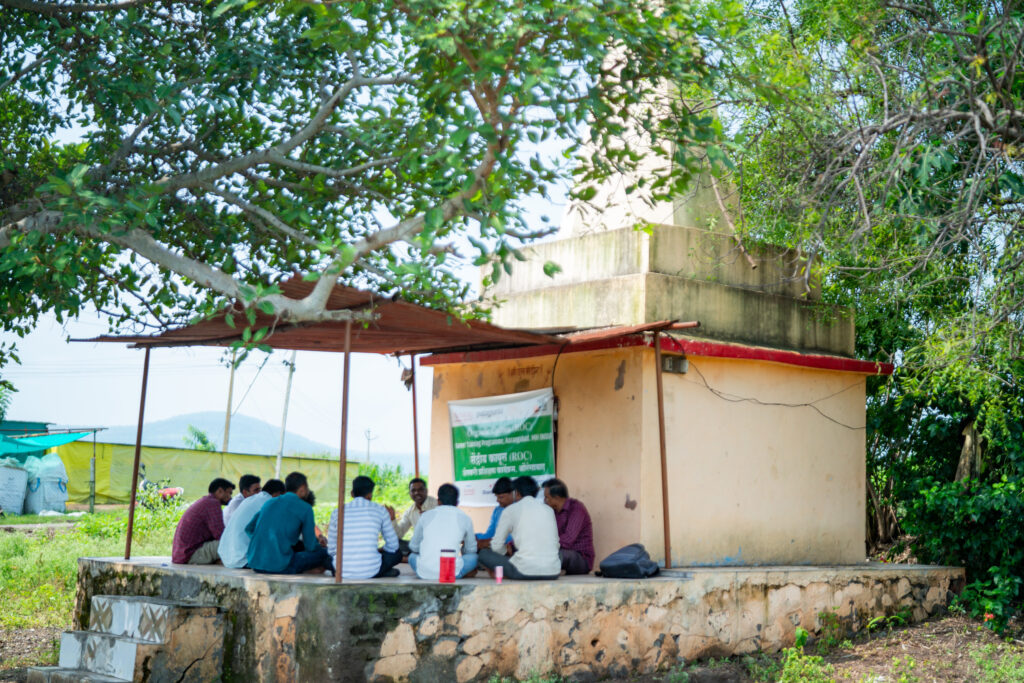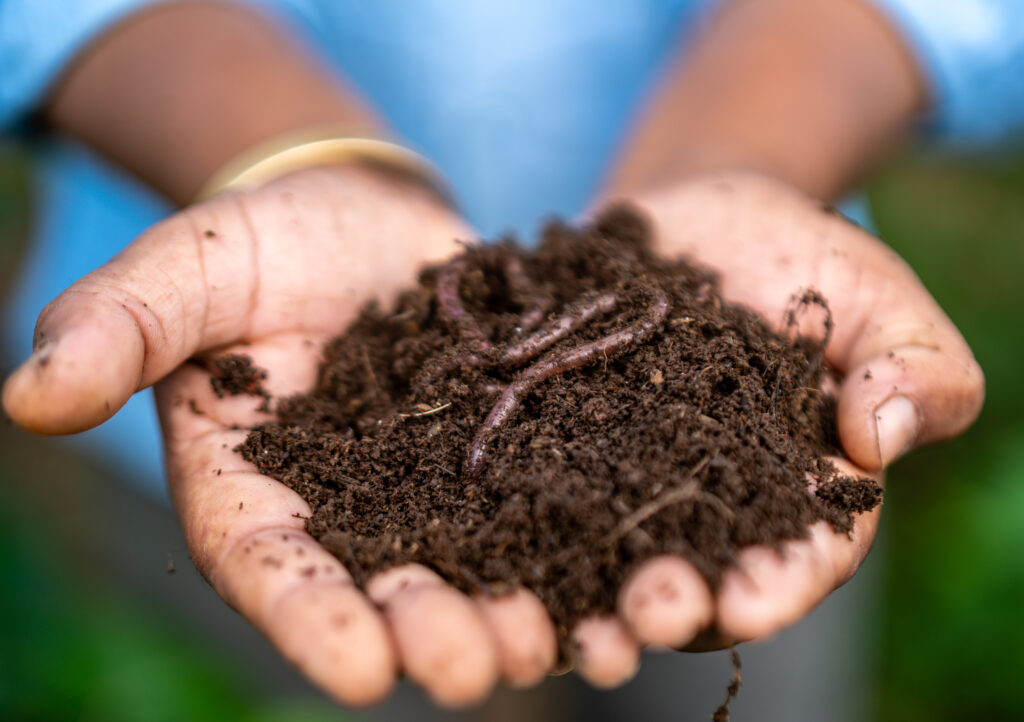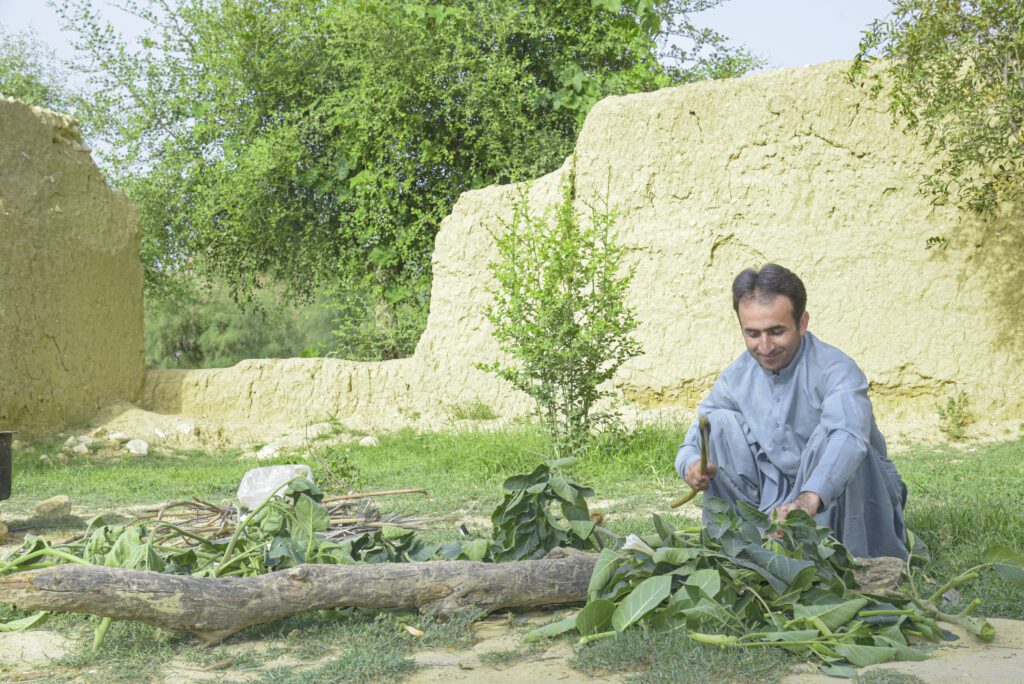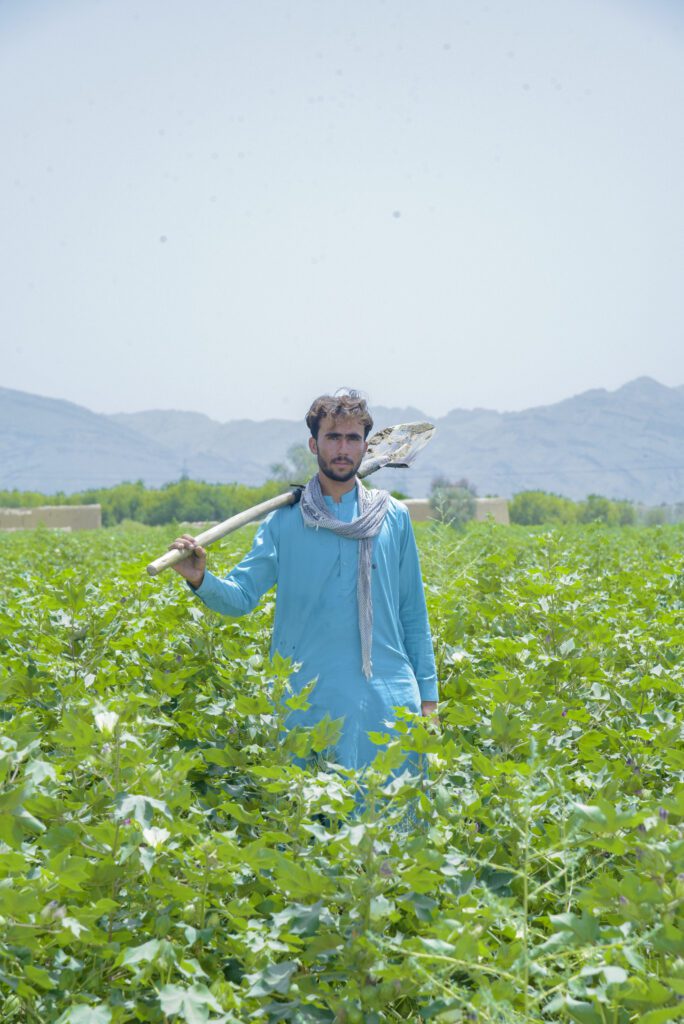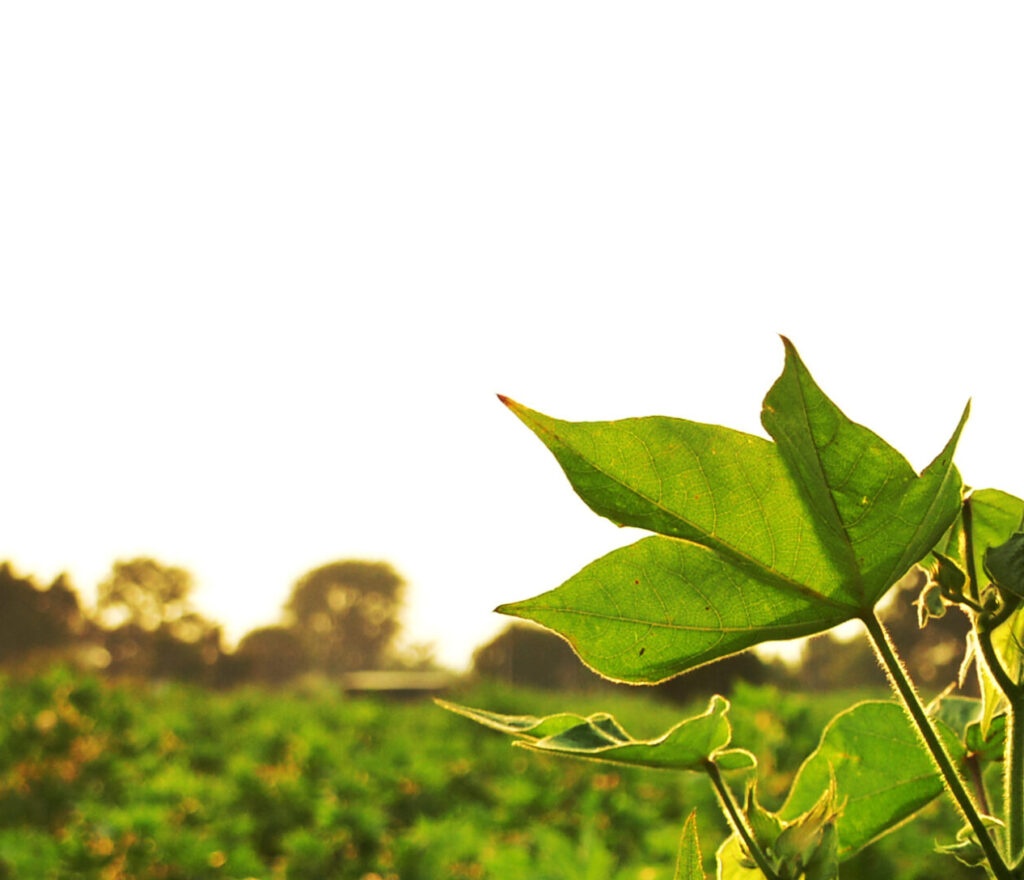 India
India In the heart of Dhamangaon village, a new chapter is unfolding in the life of Narayan Turewale, a small-scale cotton farmer. With a family of four to support, Narayan’s story mirrors that of countless rural farmers who grapple with the challenges of sustaining themselves and their families. For years, his income was primarily derived from his work as a tailor and a daily wage labourer. Farming was merely a side gig, as the weight of conventional farming’s soaring input costs loomed over him –as it does for many small landholding farmers
Narayan’s life took a turn for the better when he received support from OCA to switch to organic cotton farming. OCA’s Implementing Partner, Arvind offered support for trainings, seed distribution, and a buy-back guarantee. Narayan realised that this could be his chance to revive his farming dreams, while addressing the financial hurdles he had long encountered. Four years ago, he made the shift to organic cotton cultivation, unaware of the positive changes it would bring to his life.
Over the past year, Narayan actively participated in various training programmes offered under the OCA Farm Programme. However, what truly stands out for him is the in-person guidance and support provided by the experts whenever needed. Besides organic cotton cultivation, he gained valuable insights into sustainable farming practices. These methods, such as utilising local products like cow dung and cow urine instead of chemical fertilisers, not only boost farming performance but also reduce costs and environmental impact.
I am able and keen to learn further advanced techniques of organic cultivation as the land is better and yield is also improved with frugal and low-cost organic solutions.
One of the critical issues that Narayan faced was securing annual loans to cover input costs. The risk of market volatility and delayed payments often led to increased debt. With the assistance of OCA and its Implementing Partner, in addition to his own hard work, Narayan managed to overcome these challenges.
He ventured into vermicomposting, a form of bio-fertilser in which earthworm species are primarily used to convert organic matter or biodegradable wastes into manure. The produced vermicomposts are rich in nutrition and thus, they are widely used as bio fertilisers in organic farming. He also sought advice from fellow farmers in the cohort and OCA field experts whenever specific challenges arose, such as pest attacks. The result of his dedication and the support he received was significant.
Narayan was able to cultivate a bountiful 7 quintals of cotton on his 1-acre land, generating an increase in income.
For Narayan, organic cotton farming is not just a source of income; it’s an opportunity to return to the land and rebuild his household’s financial stability. He firmly believes in the multiple impacts of organic farming, which extend far beyond the monetary aspect.
Narayan’s health and well-being have significantly improved. In the past, his skin suffered from the harsh effects of working with chemical fertilisers and pesticides. However, since adopting organic practices, he has experienced a noticeable reduction in skin issues. This personal improvement highlights the health benefits of sustainable farming methods.
Narayan’s journey is a testament to the positive impact of organic farming and the invaluable support provided by initiatives like the OCA Farm Programme. It showcases how, with determination and the right resources, a small-scale farmer can cultivate hope and prosperity, not just for himself but for his entire community.
